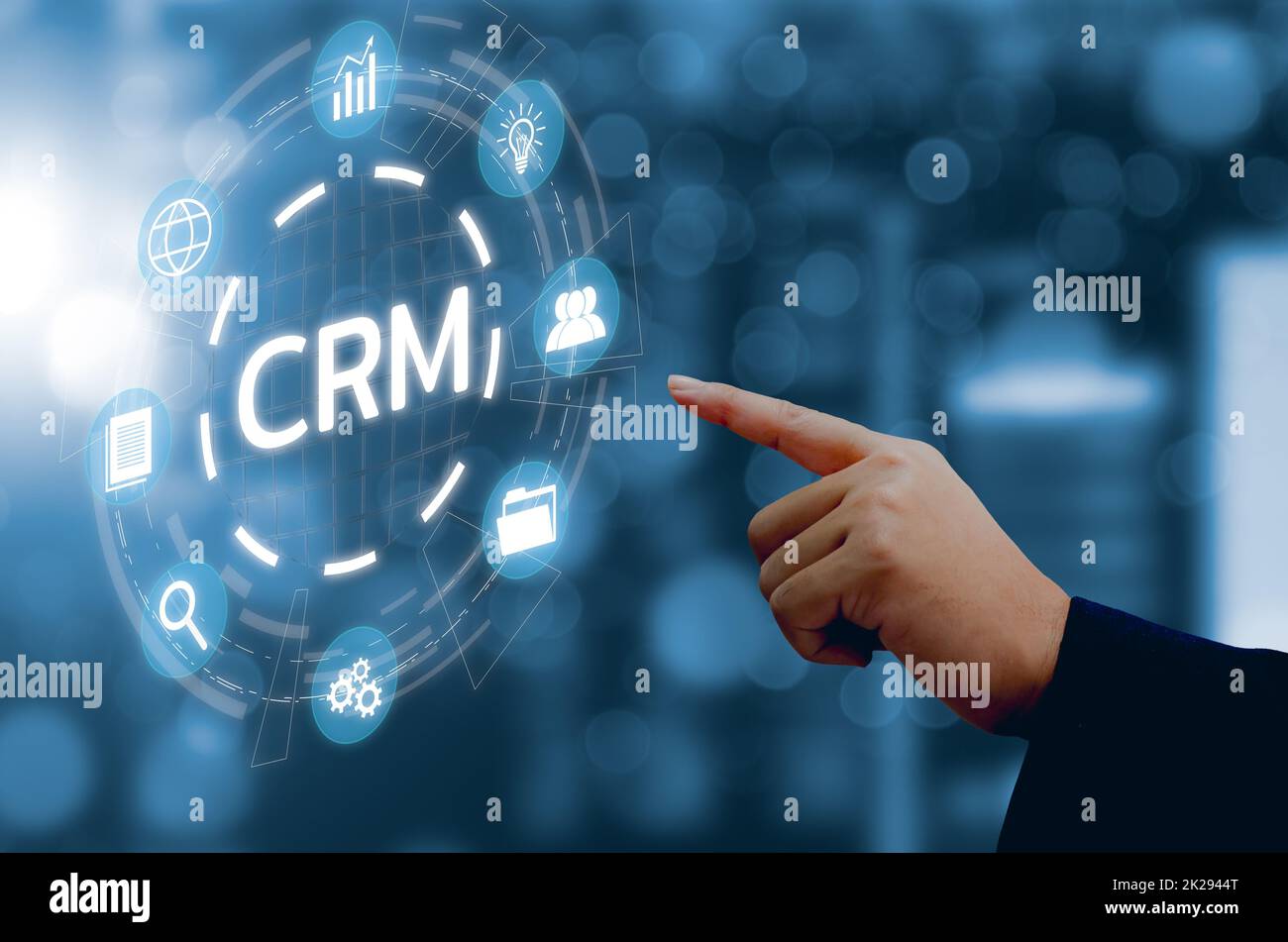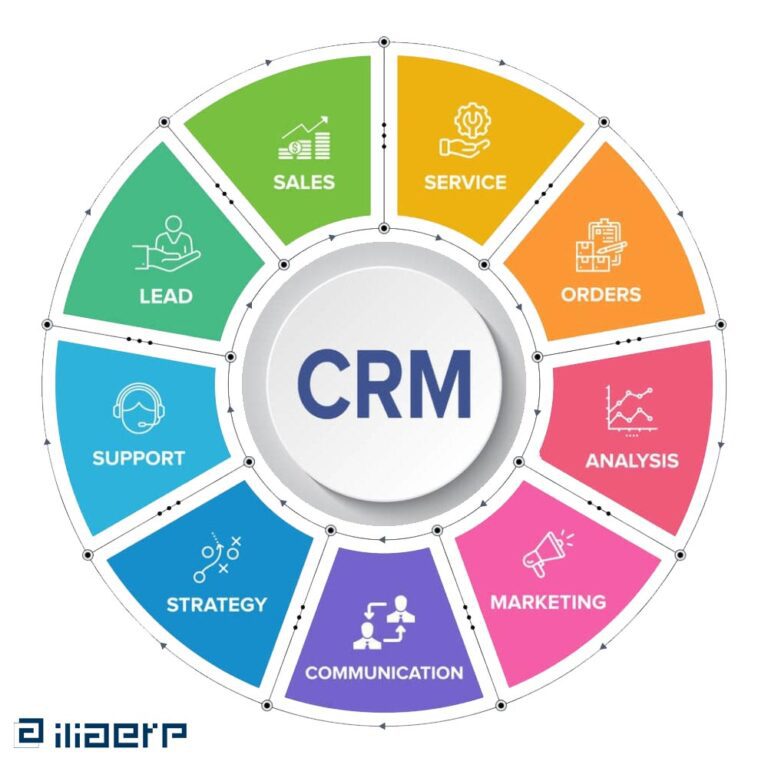
CRM for Virtual Events: Unlock Seamless Experiences and Maximize ROI
In the rapidly evolving landscape of event management, virtual events have emerged as a powerful tool for connecting with audiences, generating leads, and driving business growth. However, managing these digital gatherings effectively requires more than just setting up a webinar platform. Customer Relationship Management (CRM) systems offer a robust solution for orchestrating seamless virtual events, enhancing attendee engagement, and ultimately maximizing return on investment (ROI).
The Power of CRM in Virtual Event Management
A CRM system, traditionally used for managing customer interactions and sales processes, can be strategically leveraged to streamline and elevate virtual event management. By integrating CRM into your virtual event strategy, you gain a centralized hub for managing attendee data, personalizing experiences, and tracking event performance. Here’s how CRM empowers virtual event success:
1. Centralized Attendee Data:
- Unified View: CRM acts as a central repository for all attendee information, including contact details, demographics, interests, and past interactions with your organization. This unified view allows you to gain a holistic understanding of your audience.
- Data Enrichment: Integrate CRM with event registration platforms to automatically capture attendee data during the registration process. Enrich this data with information from other sources, such as social media profiles or marketing automation systems, to create comprehensive attendee profiles.
- Segmentation and Targeting: Segment your audience based on demographics, interests, job roles, or past engagement with your content. This enables you to tailor event content, communication, and promotional efforts to specific attendee groups, increasing relevance and engagement.
2. Personalized Event Experiences:
- Customized Content: Leverage attendee data within CRM to personalize the event experience. Deliver tailored content recommendations, session suggestions, and networking opportunities based on individual interests and preferences.
- Personalized Communication: Automate personalized email campaigns to welcome attendees, provide event updates, share relevant resources, and solicit feedback. Address attendees by name and tailor the messaging to their specific interests.
- Interactive Engagement: Use CRM data to personalize interactive elements within the virtual event platform. For example, display attendee names and profiles during live Q&A sessions, or facilitate personalized networking opportunities based on attendee interests.
3. Streamlined Event Promotion:
- Targeted Marketing Campaigns: Utilize CRM to create targeted marketing campaigns to promote your virtual event to specific segments of your audience. Craft compelling email sequences, social media ads, and landing pages that resonate with each segment’s unique needs and interests.
- Automated Reminders: Automate email reminders to attendees leading up to the event, ensuring they don’t forget to attend. Include essential event details, such as the date, time, and access link, along with any pre-event materials.
- Referral Programs: Implement referral programs within CRM to incentivize attendees to invite their colleagues and connections to the event. Track referrals and reward attendees who successfully bring in new participants.
4. Enhanced Lead Generation and Nurturing:
- Lead Capture: Integrate CRM with your virtual event platform to automatically capture leads generated during the event. Track attendee engagement with sessions, downloads, and interactive elements to identify high-potential leads.
- Lead Scoring: Implement lead scoring within CRM to prioritize leads based on their level of engagement and potential value. Assign scores based on factors such as session attendance, content downloads, and interaction with sponsors.
- Automated Nurturing: Create automated email sequences within CRM to nurture leads after the event. Share relevant content, offer exclusive resources, and invite leads to connect with your sales team.
5. Real-Time Event Analytics:
- Attendance Tracking: Monitor attendee attendance in real-time using CRM to identify popular sessions and areas of interest. Use this data to optimize the event experience and allocate resources effectively.
- Engagement Metrics: Track attendee engagement with various event elements, such as chat sessions, polls, and Q&A sessions. Analyze this data to identify areas where attendees are most engaged and areas that need improvement.
- ROI Measurement: Calculate the ROI of your virtual event by tracking lead generation, sales conversions, and revenue generated from the event. Compare the cost of the event to the revenue generated to determine its overall profitability.
Selecting the Right CRM for Virtual Events
When choosing a CRM for virtual event management, consider the following factors:
- Integration Capabilities: Ensure the CRM integrates seamlessly with your virtual event platform, marketing automation system, and other essential tools.
- Customization Options: Look for a CRM that allows you to customize fields, workflows, and reports to meet your specific event management needs.
- Automation Features: Choose a CRM with robust automation capabilities to streamline tasks such as email marketing, lead nurturing, and data entry.
- Reporting and Analytics: Select a CRM with comprehensive reporting and analytics features to track event performance and measure ROI.
- Scalability: Ensure the CRM can scale to accommodate the growing needs of your virtual event program.
Best Practices for CRM-Driven Virtual Events
To maximize the benefits of CRM in virtual event management, follow these best practices:
- Define Clear Goals: Clearly define your goals for the virtual event, such as lead generation, brand awareness, or customer engagement. Align your CRM strategy with these goals.
- Data Privacy: Prioritize data privacy and security by complying with relevant regulations, such as GDPR and CCPA. Obtain attendee consent before collecting and using their data.
- Cross-Functional Collaboration: Foster collaboration between marketing, sales, and event teams to ensure a cohesive and integrated approach to virtual event management.
- Training and Support: Provide adequate training and support to your team on how to use the CRM effectively for virtual event management.
- Continuous Improvement: Continuously analyze event data and feedback to identify areas for improvement and optimize your CRM strategy.
Examples of CRM Use in Virtual Events
- Webinars: Track webinar attendees, engagement levels, and Q&A participation to identify high-potential leads for follow-up.
- Virtual Conferences: Personalize the conference experience by suggesting relevant sessions, networking opportunities, and sponsor booths based on attendee interests.
- Product Launches: Use CRM to segment your audience and deliver targeted marketing campaigns to promote your product launch to specific customer groups.
- Training Programs: Track attendee progress, completion rates, and feedback to optimize your training programs and improve learning outcomes.
Conclusion
CRM is a powerful tool for managing virtual events, enabling you to personalize experiences, streamline promotion, enhance lead generation, and track event performance. By integrating CRM into your virtual event strategy, you can create seamless and engaging experiences that drive business growth and maximize ROI. Embrace the power of CRM and unlock the full potential of your virtual events.

